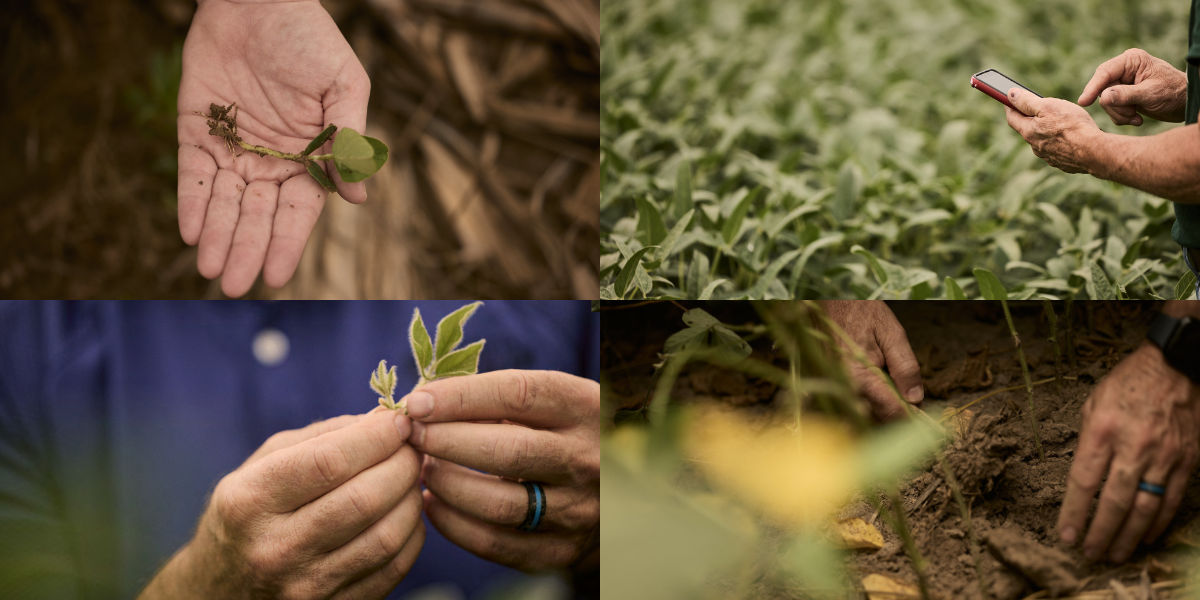VOICE FOR SOY
As we look to close out another year and with the transition in power in Washington, we are reminded again of the need to be an active participant in our political process. Political decisions lead to policy decisions. As agriculture continues to be represented by fewer and fewer voices, we must redouble our efforts to be loud and active advocates for our farms. Throughout this year, Illinois Soybean Growers (ISG) and our members have been incredibly active as voices for agriculture. We’ve met with every one of our members of Congress. We have educated and lobbied several dozen state legislators. In every meeting, our goal first and foremost is to make sure that they understand the impact policy is having and could have on Illinois farmers. We use these meetings as one tool to share the voice of Illinois farmers directly with their elected officials on key issues. We also use tools such as the Illinois Soybean Growers Political Action Committee (ISGPAC) to place attention on the relationships that we have with our legislators. In Field & Bean this year you have heard directly from a few of the key legislators that we rely on day in and day out who are true friends of the Illinois soybean farmer.
As we look ahead into 2025 and a new administration in Washington, we will work to ensure that key voices are in positions of power and leadership who have connections to our farmers. We look at positions including those at the Risk Management Agency (RMA), Farm Services Agency (FSA), USDA at large, U.S. EPA and many other lesser-known positions. Additionally, there are several legislative matters that are still outstanding this year. Most notably at the federal level is the passage of a Farm Bill. The Farm Bill expired at the end of September, and Congress either needs to extend the 2018 Farm Bill once more or enact a new piece of legislation. ISG and American Soybean Association urge Congress pass a new Farm Bill that considers the current needs of Illinois and American soybean farmers. This includes ensuring protection for crop insurance as well as improving commodity support for soybean farmers. If Congress does not act by the end of this year, permanent law will be in place for many federal commodity programs. This outcome would be extremely disadvantageous and would lead to consumers and farmers both losing. Our organization will remain committed to engaging with our congressional delegation to pass a Farm Bill that meets the needs of Illinois soybean farmers.
At a higher level, before the Biden administration leaves office, it is expected that a rule will be released on the 45Z tax credit that implements portions of the new Clean Fuel Production Tax Credit as included in the Inflation Reduction Act (IRA) passed in the summer of 2022. This transition replacing the Blenders Tax Credit that applied to biodiesel blends will have major impacts on the industry. Without clear guidance of how the new 45Z credit will work, challenges will be faced by both the biofuels industry as well as by farmers, who could benefit via their production practices under the new rule. Soybeans will be disadvantaged by losing over 60 cents per gallon of B100 produced under the new tax credit. We estimate that this will have at least a $3,300 impact on every Illinois farmer.
ISG will be at the table, loudly and regularly advocating for solutions to these challenges that work in the favor of Illinois soybean farmers. We will also be engaged in a few other issues that you will hear more about in the months to come. That includes efforts to pass a low carbon fuel standard in Illinois and next steps on our newly passed carbon capture and sequestration legislation. We encourage you to participate in the annual ISG membership dinner and Soybean Summit events, where you’ll be able to learn more about these key issues that are impacting the profitability of soybean farmers in Illinois. For more information, visit ilsoy.org.
Recent Articles
In this issue of Illinois Field & Bean Magazine, we're looking forward to the 2026 Soybean Summit.
By
Sulfur is essential for plant growth, yet it's only just becoming a common addition to fertilizer management plans. This shift is no coincidence.
By Darby Danzl, ISA Regional Technical Agronomist

